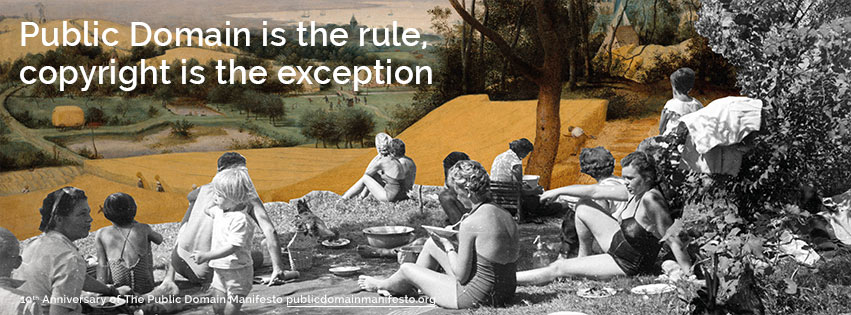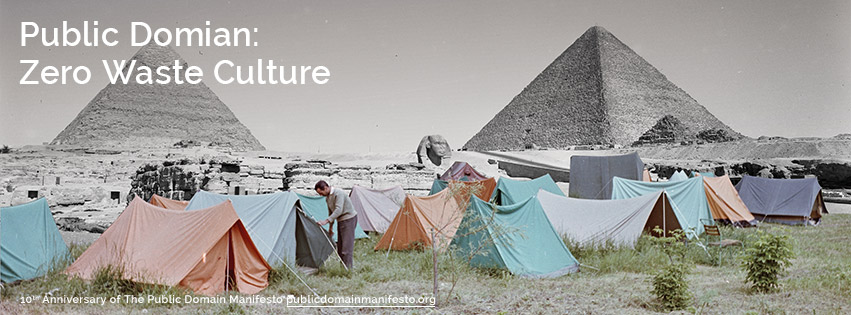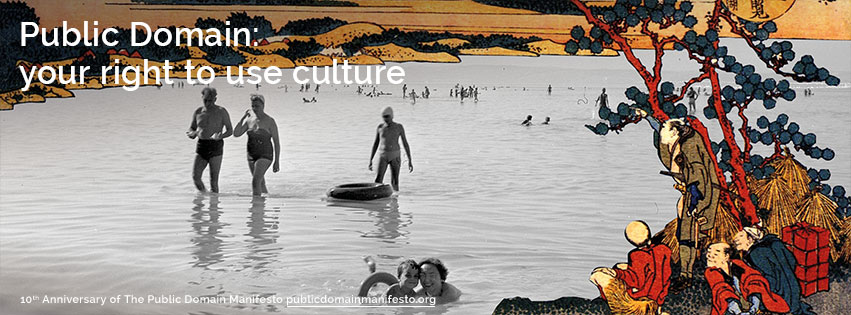2019 is a special year for the public domain, the out-of-copyright material that everyone is free to enjoy, share, and build upon without restriction. Normally, each year on the 1st of January a selection of works (books, films, artworks, musical scores and more) enter the public domain because their copyright expires – which is most commonly 70 years after the creator’s death depending on where in the world you are. This year, for the first time in more than twenty years, new material entered the public domain in the US, namely all works that were published in the year 1923.

Due to complicated legal proceedings, the last new release of public domain material in the US was in 1998, for all works dating from 1922. But from now on, each following year we will expect to see a new batch of material freed of copyright restrictions (so content from the year 1924 will become available from 2020 onwards, content from 1925 in 2021, and so on). This is good news for everyone, since the availability of such open cultural data enables citizens from across the world to enjoy this material, understand their cultural heritage and re-use it to produce new works of art.
The Public Domain Review, an online journal & not-for-profit project dedicated to promoting and celebrating the public domain, curated their Class of 2019: a top pick of artists and writers whose works entered the public domain this year. A full overview of the 2019 release is available here. A great way to celebrate this public domain content in 2019 could be to organise events, workshops or hackathons using this material on Open Data Day, the annual celebration of open data on Saturday 2 March 2019. If you are planning an event, you can add it to the global map via the Open Data Day registration form.

Coinciding with this mass release of public domain works, the Public Domain Manifesto that was been produced within the context of COMMUNIA, the European Thematic Network on the digital public domain, has now been made available via a renewed website at publicdomainmanifesto.org. Describing the public domain material as “raw material from which new knowledge is derived and new cultural works are created”, the manifesto aims to stress the importance of the wealth of the public domain to both citizens and policy-makers, to make sure its legal basis remains strong and everyone will be able to access and reuse the material in the future.
The manifesto describes the key principles that are needed to actively maintain the public domain and the voluntary commons in our society, for example to keep public domain works in the Public Domain by not claiming exclusive rights to technical reproductions of works. It also formulates a number of recommendations to protect the public domain from legal obstacles and assure it can function to the benefit of education, cultural heritage and scientific research in a meaningful way. There are currently over 3.000 signatures of the manifesto, but additional support is important to strengthen the movement: you show your support by signing the Public Domain Manifesto here.

As Communications Officer, Lieke works on increasing the profile and awareness of Open Knowledge Foundation projects online. She previously coordinated the OpenGLAM initiative, promoting free and open access to digital cultural heritage data and has been managing European projects in the areas of open cultural data, open access and open science. She is based in Berlin, where she also serves as Community Director of the Disruption Network Lab.








